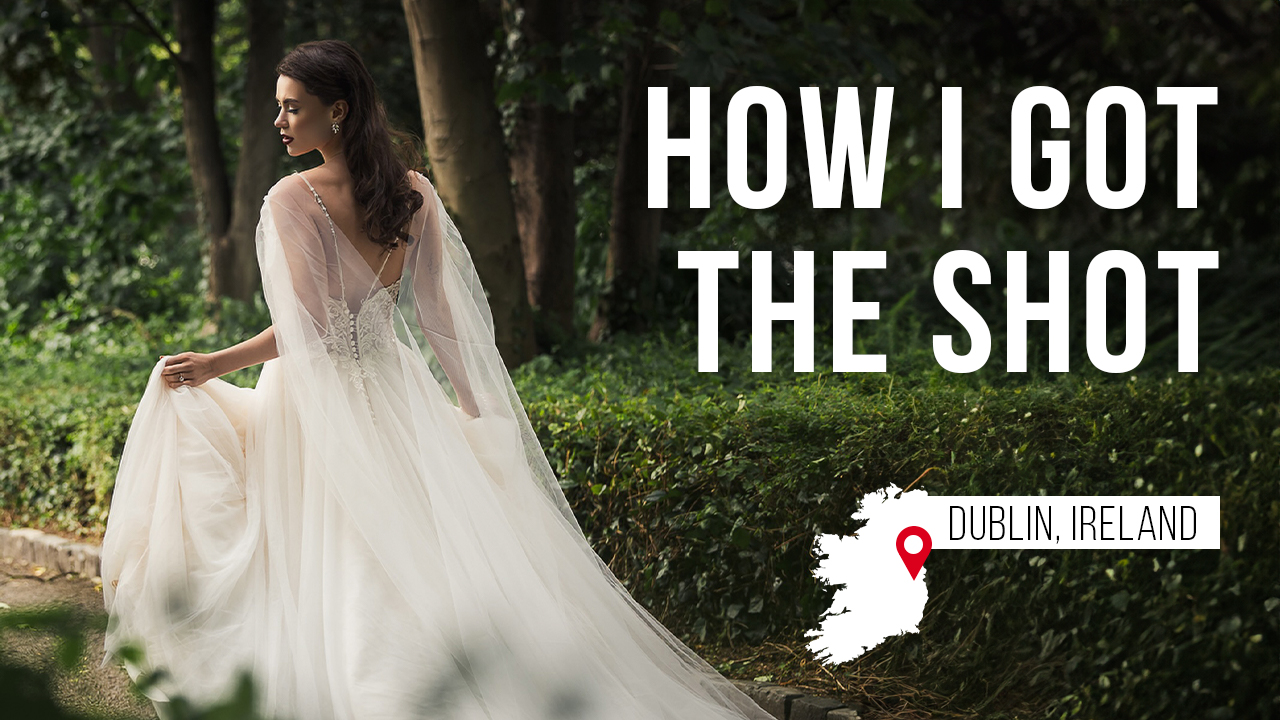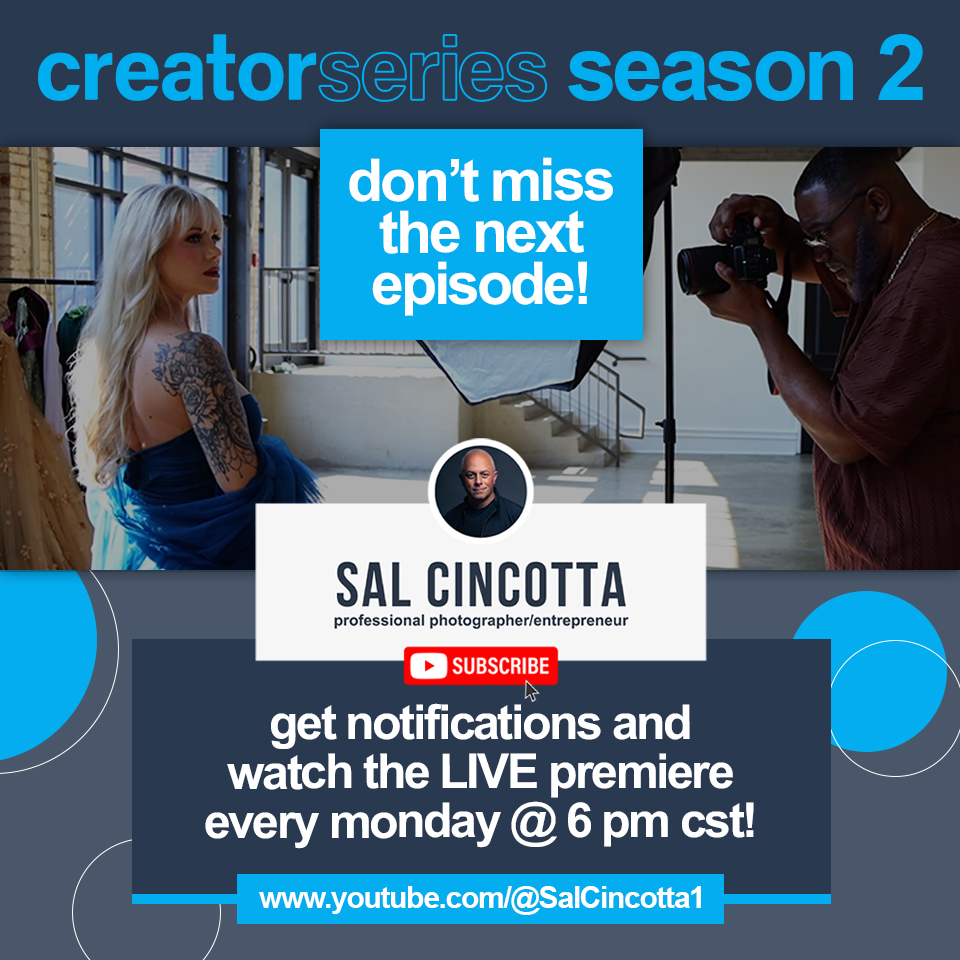How to Recognize & Prevent Photography Burnout with Skip Cohen
In blog posts and workshops over the years, I’ve written and talked a lot about recognizing when you need a break. I always get great feedback, but it’s ironic how often I miss the signs myself and fail to follow my own advice.
One of the hardest things to do as a small business owner, especially artists, is to recognize when you’re approaching burnout. It’s all about your passion for the craft and your definition of success.
Too many of you define success only in financial terms. We all work hard to support our families, lifestyle and zest for life, and it takes money, but so often we miss the true meaning of success. For me, it’s evolved into waking up every morning with incredible enthusiasm and a smile on my face. And it’s taken me a lifetime to learn that.
Sometime after you read this article, think through your definition of success. What do you enjoy most about the business? What do you want things to look like a couple of years from now? What do you need in your skill set to achieve your goals?
All of us experience stress. Nobody is sailing through life on smooth waters all the time. Things happen that slow us down and blur our focus on what’s most important.
If you Google “signs of burnout,” you’ll find endless articles. The following five points are from an article on Healthline.com.
- Everything about your job starts to annoy you.
- You have zero energy to give.
- Work/life balance is nonexistent.
- You eat, sleep and dream work.
- You’re an irritable mess.
Here are my five, some of which overlap, but they tie more to photography.
- Apathy – It’s the first sign of burnout and needing a break. You feel blah about whatever you’re about to photograph. When you lack enthusiasm, odds are you’re going to lack creativity too.
- Frustration – You did everything right, but the images don’t match what was in your mind’s eye as you were clicking the shutter.
- Anger – You seem to have a short fuse about anything that’s not planned.
- Low energy – You’re tired and can’t seem to get excited about what you’re doing. Your camera bag feels like it’s getting heavier.
- Distracted – Your mind seems to be everywhere but whatever you’re working on. You’ve noticed you don’t want to answer the phone and don’t want to deal with clients.
The signs are always obvious when we talk about them, but they’re not when they’re happening. I can’t figure out what’s wrong but I know when I’m off my game. That’s often where my wife, Sheila, comes in—and your own family can be very important in helping you, too.
Here are some strategies to think about.
Your family: You’ve got to keep your family in the loop. They can’t understand your frustration if they don’t know what you’re working on. They need to be a sounding board for your ideas, both the good and the bad. The more they know about your business, the more they can help, even if it’s just to be a sounding board.
Close friends in the industry: These are the people who are at the core of your network, the ones you trust the most. Don’t be afraid to share your frustrations and seek their help to get back on track.
Take time off: It’s taken me years to figure this one out. I’m great at taking short breaks from the business, but horrible at taking longer quality time off. And even when I take time off, I still work every morning checking email and writing blog posts.
Quick charges versus rebuilding: When I think of the need to step away from the business, there are two kinds of breaks. The first is just a quick charge. The signs for me are my lack of creativity, writer’s block and my inability to focus. A quick charge can be anything as long as I’m stepping away from what I’m working on. I just need to do something different, like go out to lunch with Sheila, take a walk on the beach or listen to some great music.
For many of you, just taking your camera out and shooting for your own enjoyment or stepping away from photography completely might be the break you need. Whatever works for you. It’s a quick charge of your battery, and then you go back to what you were working on a few hours later.
The complete rebuild is a lot harder to figure out, but it’s worth it. This is about going off the grid—at least regarding your business and photography. It’s about taking a vacation. So often over the years, especially when I was in the corporate world, I’ve heard people boast about how long they’ve gone without a vacation, as if it’s some badge of honor that they have vacation days they’ll never use. Actually, they should be embarrassed.
Here are some more strategies to think about.
Backup: You’re familiar with backup gear—but what people are your backup? When you need to take a more extended break than just a quick charge, who’s stepping in to run the business? And if you don’t have anybody, isn’t it time you trained somebody to step in? Or how about building a relationship with another photographer so you watch out for each other when needed?
Friends outside the industry: Don’t underestimate the importance of spending time with friends who are involved in businesses outside photography. It’s incredible what you can learn, but even better how much fun it is to spend time talking about something other than imaging. Build those relationships in your community. Participate in networking events. Build a segment of your network with people you enjoy being with, but not as business associates.
Shooting for the fun of it: When was the last time you had a camera in your hands for no other purpose than to play? Remember your roots and go back to those things you photographed that got you into the business in the first place. For me, nothing beats chasing butterflies with a Lumix.
Community involvement: Here in Sarasota, Florida, I’m involved with a nonprofit called the Friendship Centers. Being involved with charitable organizations boosts my energy and can often get me out of a rut. It’s about doing something that makes a difference and at the same time is entirely outside my business. For many of you, it might serve a dual purpose: building brand awareness while enjoying the satisfaction of being involved. Remember, you want your community to be good to you, so you better make sure you’re good to your community.
Diversity: Burnout can come when you’ve been doing the same thing for too long. I’ve got a good friend who’s been a wedding photographer for a lot of years. He’s incredibly bored, and although he’s one of the very best, he’s lost his passion for it. He’s recognized the importance of a change before he burns out, and we’ve had some great conversations about what he might do next. Sometimes, just talking about a change has therapeutic value. The energy that goes into planning becomes a diversion that can pull you out of a rut.
Get enough sleep and exercise: Sleep and exercise have a crucial impact on burnout, but they’re often the last thing we think about. Everyone has a different level of sleep they require. When I’m running low on sleep, it’s like being overdrawn on a bank account. You’ve got to get in the sleep and replenish your account. Don’t underestimate your need for more sleep.
It’s so hard to stay focused and turn exercise into a habit. Sheila and I started walking every morning 16 months ago. If I had been doing it by myself, I know I wouldn’t have kept it up. If you have a partner, it’s so much easier to stay focused. Many of us spend all our waking time at a computer. Just following through on an exercise program isn’t enough. The recommended time sitting at a computer is one hour with a five- to 10-minute break to get up and walk around.
Learn to recognize when you need a break. When you’re working with your clients, you’ve got one essential goal: Exceed their expectations. That means the images you capture need to pull at their heartstrings. And you can’t create photographs that tug at people’s heartstrings if your own heart isn’t in it.




